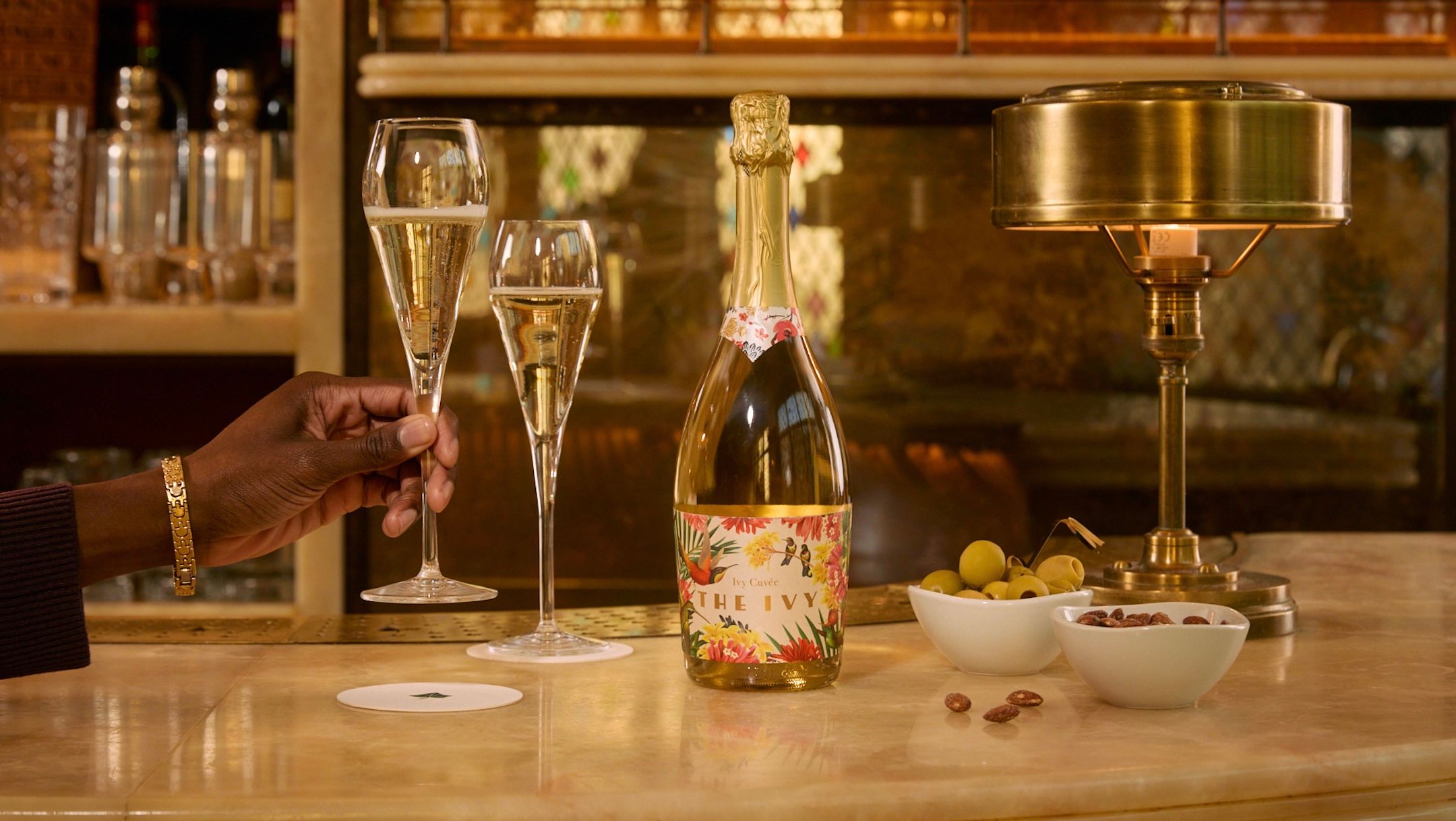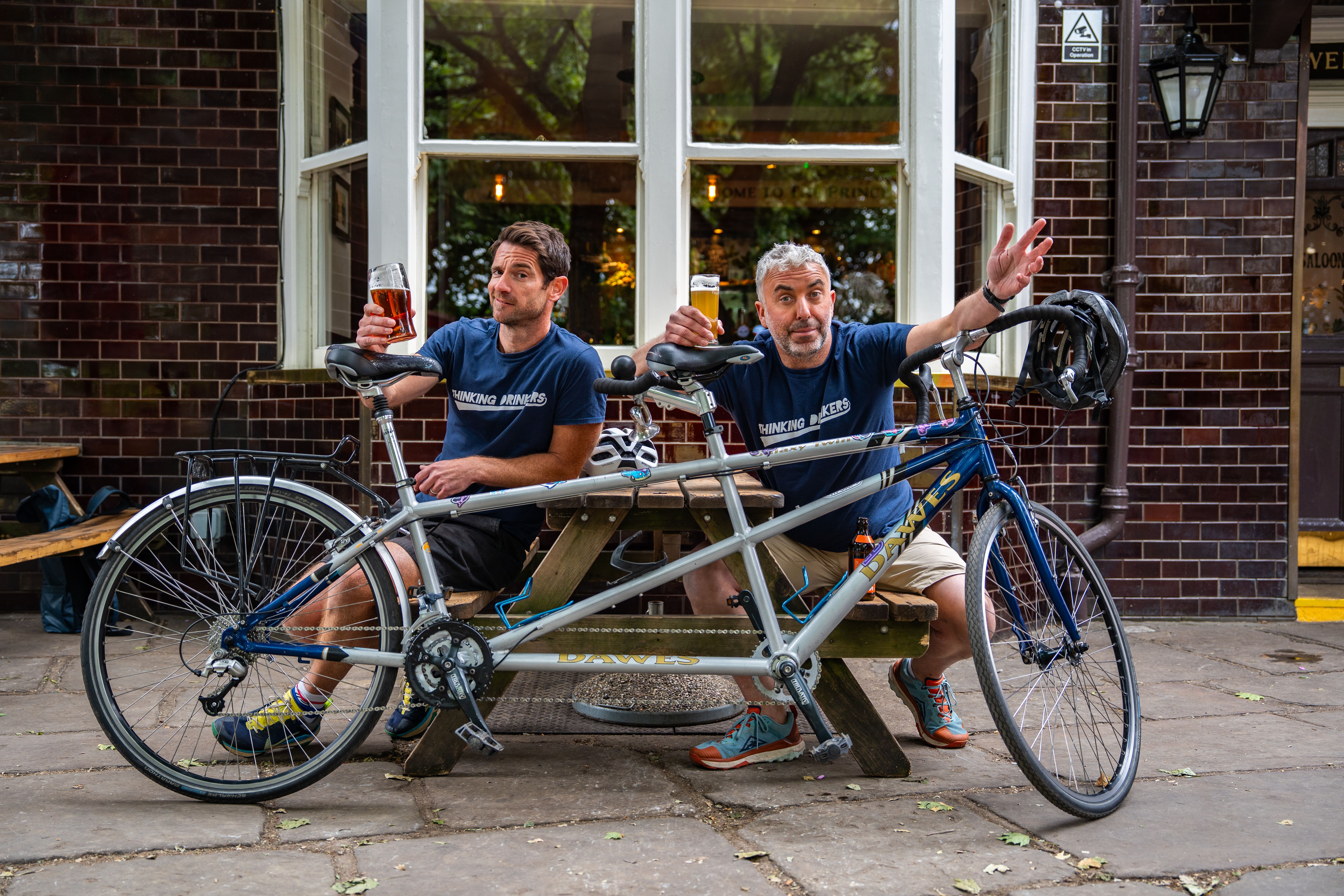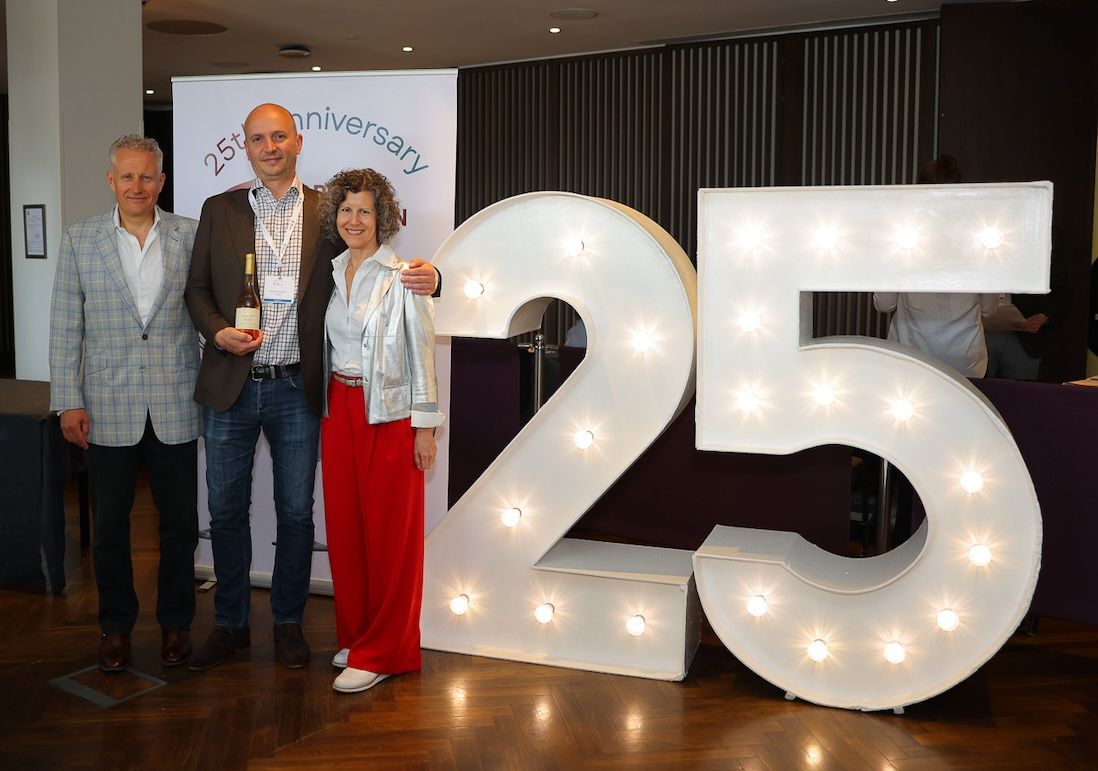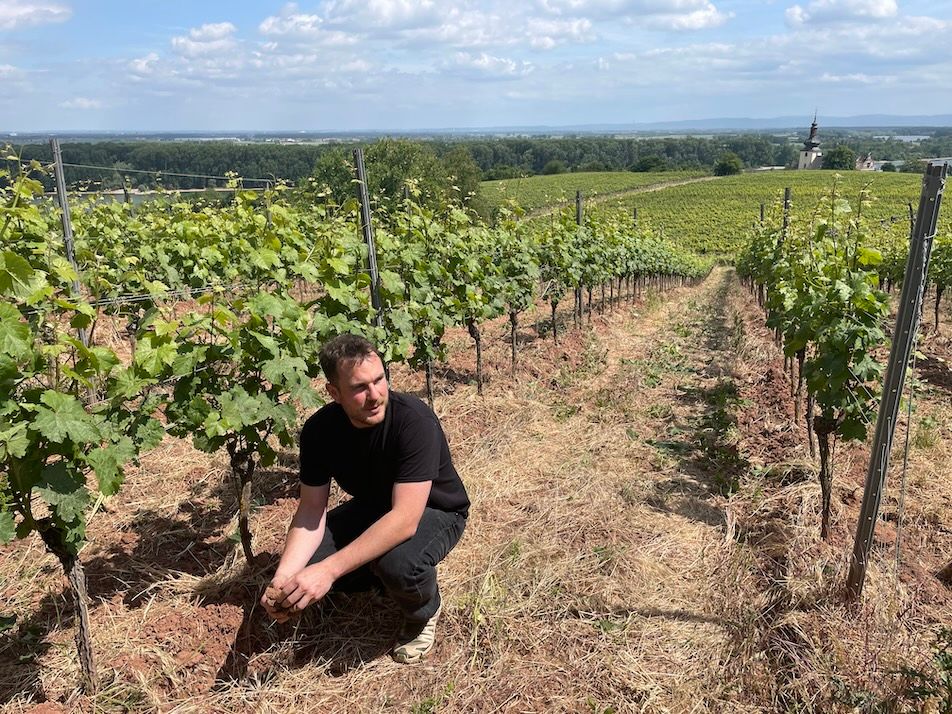The Wine Traders for Alternative Formats ‘COP26’ tasting takes place on November 11 (1pm-5.30pm) at the Institute of Masters of Wine in Battersea, south London. It will feature a range of wines all in a variety of packaging from bag in box, to cans, to pouches from BIB Wine Company, Canned Wine Co, Copper Crew, Graft Wine Company, More Wine and When in Rome.
You have come up with a new idea to look at alternative packaging – what is the concept of your new WTAF trade and press tasting?
We’re all specialist importers, some of whom sell retail and some wholesale, but all of whom have gained a reputation for quality wines – we thought it would be really powerful to show just how much progress has been made by putting a selection of each of our wines in the same room.
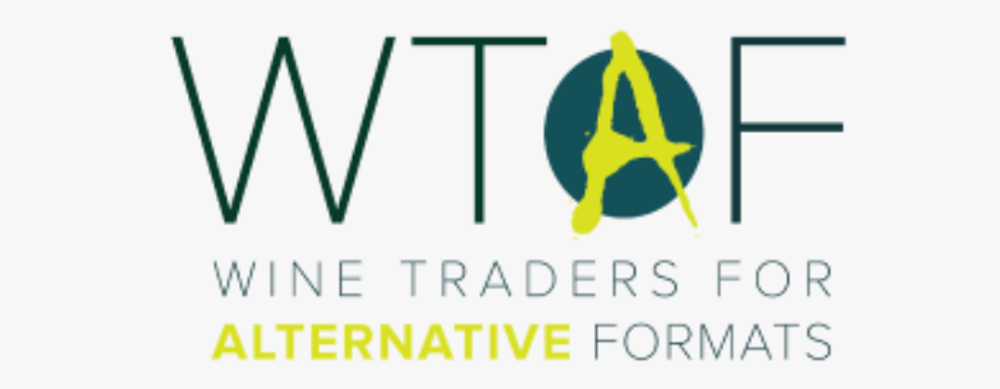
You are all essentially competing brands in this area so have you worked before and how did this partnership come about?
We don’t really see it that way. We haven’t worked together before, but all the companies involved believe strongly that alternative packaging is essential to the future of wine. Specifically, because of the environmental crisis we’re facing and the huge potential carbon savings of alternative formats. If that doesn’t motivate you to collaborate then I don’t know what will.
What are the key goals for the tasting and event?
To give trade and press a chance to taste the wines. It’s a hassle to have to visit tastings of one brand at a time, especially with smaller independent brands. Hopefully, this will help increase awareness too. Awareness of the damage to the environment done by the glass bottle, but moreover awareness of the convenience and potential for quality wine in alternative packaging formats. We believe that people should think about the impact that drinking wine in glass bottles can have. But that doesn’t work without the arrival of a genuine alternative – so I guess that’s what we’re here to show.
How will the event work – what will people get to see and do if they come?
They’ll get to see alternative wines available in supermarkets, independent merchants, and direct to consumer clubs. They’ll get to taste wines from boxes, kegs, pouches and cans. And to meet the people driving these companies.
What do you think are the main competitive advantages of working with alternative packaging?
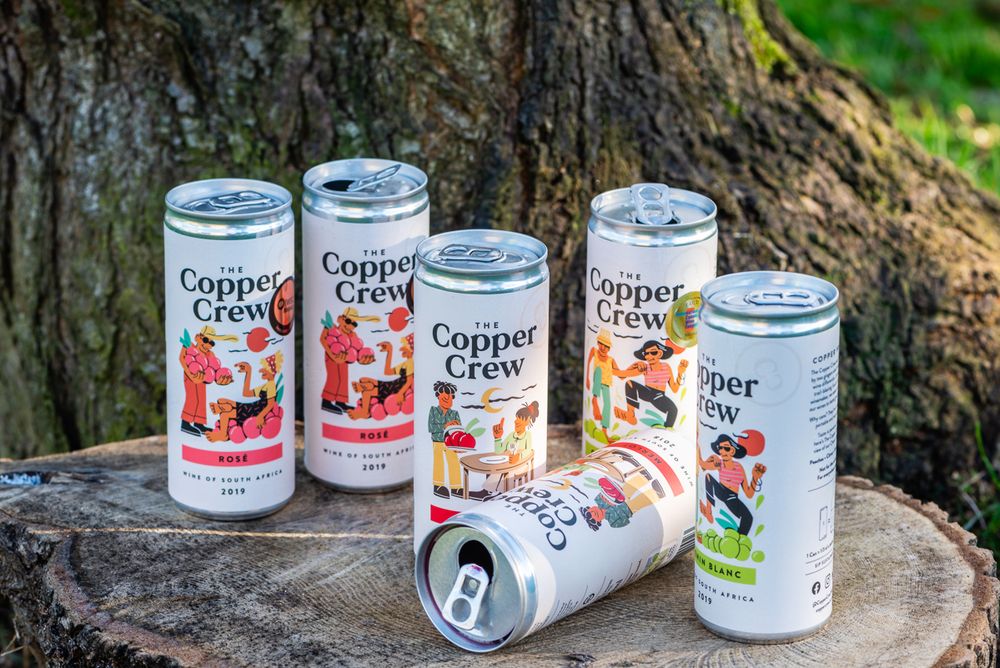
The Copper Crew’s range of cans will be available to taste at the event
The obvious one is the environmental benefit and this is the reason for our timing the tasting to coincide with COP26. We drink 1.66 billion bottles of wine every year in the UK. We can save 0.45375kg of C02e per bottle by swapping them for alternative formats. That’s 750 million kg of CO2e per year to be saved. According to the Department for Transport that’s the equivalent of taking 350,000 conventionally fuelled cars off the road.
That’s based on a comparison of bottles to boxes in the Alko Study, but cans also offer a considerable saving over bottles and KEGs are likely to offer a greater saving even than boxes. It also doesn’t take into account the likely savings in terms of wastage. We’re estimated to pour over 600 million of those bottles down the drain every year. So those gains could be increased by as much as a third, as most alternative formats provide a means for preventing waste.
All sustainable products work best when they provide advantages over what has come before. This really is the case with alternative wine packaging. Wine kegs or boxes cut out waste in bars and restaurants, so increase the number of wines that can be offered by the glass. At home this same longevity (boxes last weeks not days once opened) means a single glass of wine is an option without having to worry about the rest of the bottle. At the same time they’re great for groups and work out better value too. And then cans are super light and transportable, great for travel, events or picnics and there’s a real ‘pick and mix’ excitement if you want to try different things at home.
What do you say to those who question the quality of wine in can or a box?
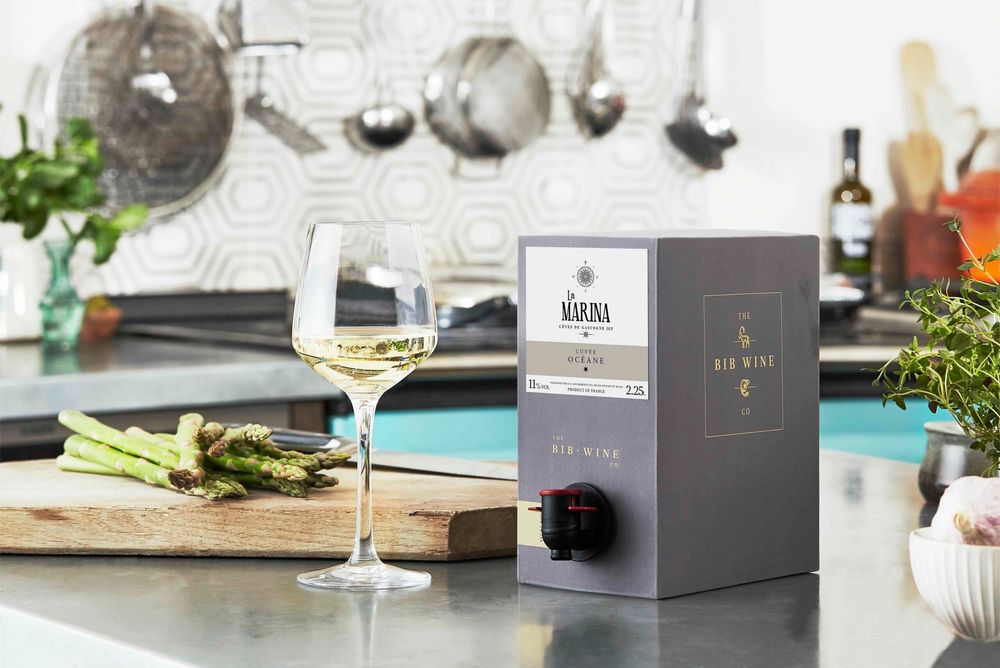
BIB Wine Company is looking to change the image of bag in box wine by sourcing premium wines from classic and emerging wine regions
We don’t hear that so much any more weirdly. It’s mostly about getting the message out that quality is now available in these formats, not whether it’s possible. But if we did hear it we’d probably point them to a similar argument over screw caps 20 odd years ago.
What do you see as being the next big challenges for alternative packaging businesses to get over in order to increase distribution?
The companies represented by WTAF are all premium wine companies. Their customers tend to be well informed and great first adopters. There is a perceived challenge that it will be harder to convince consumers in the non-premium sector. Personally, I’m not so sure and think that’s a little patronising. I do think though, that trends in the premium sector tend to have a knock-on effect in other sectors.
A further challenge lies within the logistics. Increased filling and storage capacity are likely to be required as demand grows. For example, most box filling previously offered in the UK was in industrial-scale bottling factories. This doesn’t necessarily work with premium wines that are often made in small volumes, so companies like those in WTAF have had to look elsewhere for more premium and artisanal processes and facilities. These facilities will have to grow considerably over the next few years.
If you look at our own bag in boxes they are also recyclable – another major development. Pouches, caps, bags and taps are recycled using an energy efficient carbon induced pyrolysis process that breaks them down into feedstock oils. These feedstocks can be used to make brand new packaging in a repeatable process, effectively creating a closed loop. It’s an industry first, and really cool technology that we’re sure will revolutionise recycling.
Do you think major drinks buyers need to walk the talk more in this area and give more space to alternative packaging?
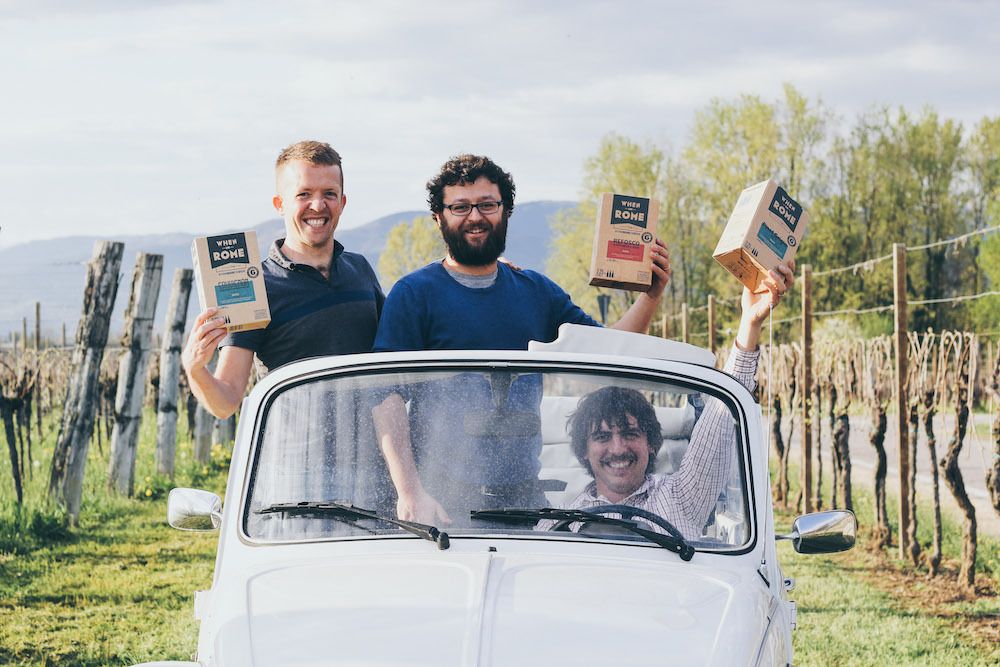
The team behind When in Rome who are looking to combine a serious attitude to wine with a fun approach to wine packaging and marketing
Yes. We should all be doing more ‘doing’ not just talking about it.
Funnily enough though, the limited shelf-space of the past 20 years has been of great value. Because alternatively packaged wines have been hidden away, it has meant that they’ve been forgotten about. This has allowed for a real relaunch of the idea, one with no real connection (in terms of the wine at least), to what has come before.
Will you be looking to do more with the other companies in the WTAF tasting with other events and activities?
We hope that this will be just the start and look forward to further collaborations. We’ve had some ideas, but none that we can confirm just yet.
For those that don’t know BIB Wine Company what makes you different?
Like the other members of WTAF, we’re really all about the wine. We’re hugely proud of having over 20 wines in our range, and the variety offered. We must be the first boxed wine company to offer a Hungarian Furmint and Domaine Sancerre, let alone a Turkish Calkarasi rosé. I also think there’s a great spirit of community amongst our Club members and other customers. We haven’t created some new social media app about our wines or anything, but our Club members come to a lot of online tastings, and these are always great fun
- The WTAF trade and press tasting on November 11 is by invitation only and you can find out more and register your interest by emailing oliver.lea@bibwine.co.uk. It takes place between 1pm-5.30pm at The Institute of Masters of Wine, 6 Riverlight Quay, Kirtling Street (Off Cringle Street), London, SW11 8EA. Nearest tube is the new Battersea Park stop.

